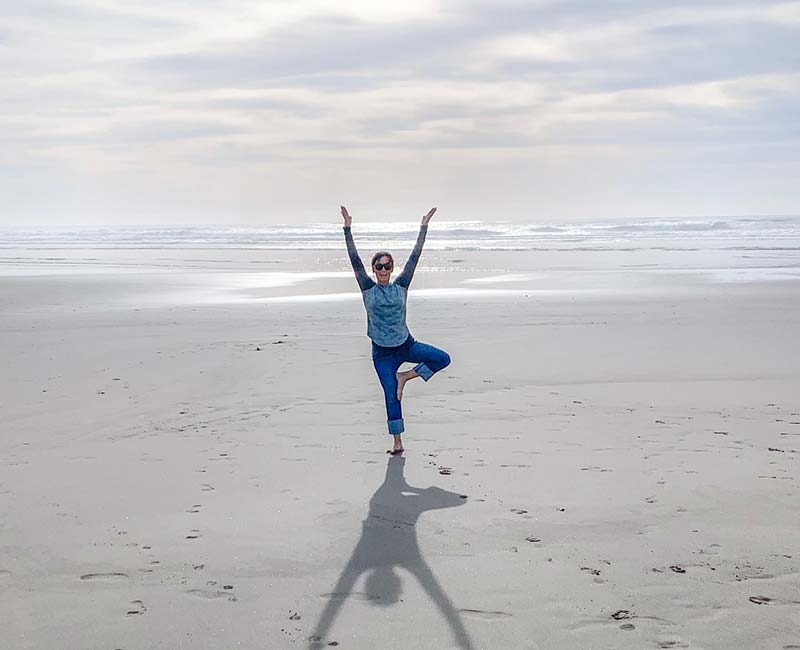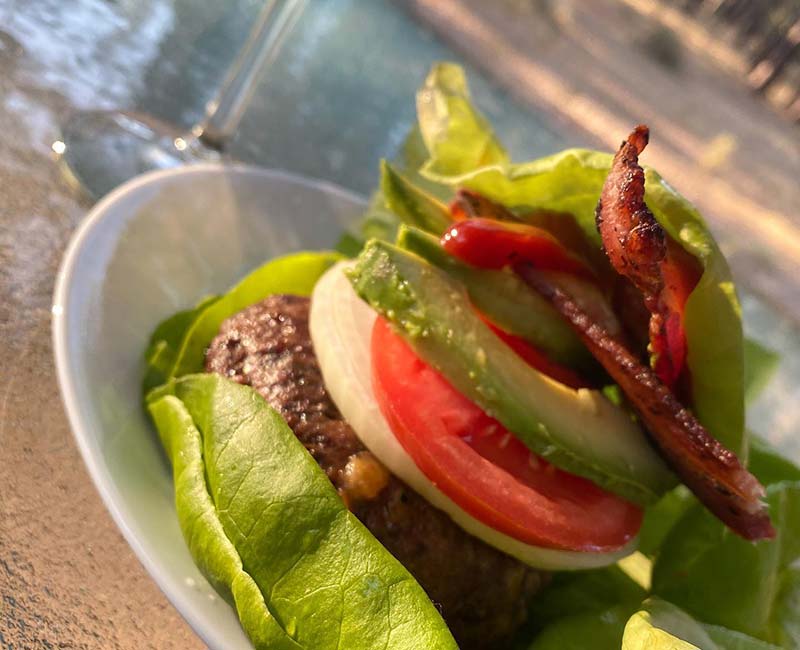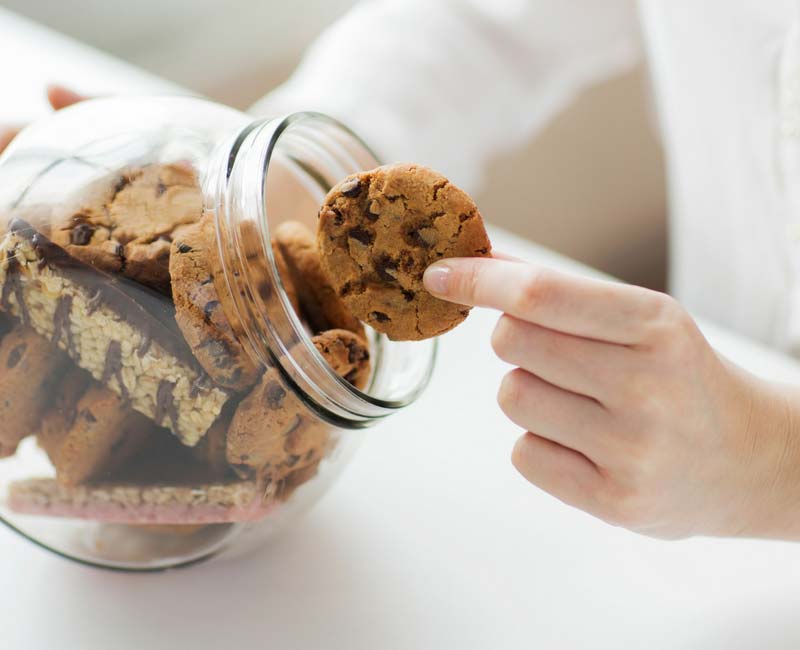
How do you lose weight without slowing down your metabolism or losing your mind?
Gone are the days of low fat and calorie restriction…right? Are they? I’m not so sure.
If you are low carb you totally don’t have to worry about calories, right? Wait, is that true? I’m so confused.
If you ask people about either of these subjects I can promise you will receive different responses and they will be all across the board. You will likely become quite confused and left wondering “now what?”
Calories are a tricky thing. The first thing to understand is that the way your body metabolizes a calorie will be different than how it works for your best friend or neighbor and it’s dependent upon many things. In fact, this also is different for your own body in your 20s versus your 40s, etc.
Let’s put age and genetics aside for a moment. What factors impact our metabolisms that we have control over?
Body composition, meaning your body fat % compared with muscle and skeletal mass. Clearly the more muscle and less fat you have going on, the higher your metabolism will be. Good motivation to get to lifting weights or doing some functional fitness using your bodyweight!
Thyroid levels. I go into detail on which labs to have run here, but what you need to understand is that if your doctor checks your TSH only or your TSH and Free T4, that is NOT ENOUGH INFORMATION!! We need TSH, Free t4, Free T3 and Thyroid Antibodies (Thyroid Peroxidase Antibodies [TPOAb] and Thyroglobulin Antibodies [TgAb]) at the very minimum for thyroid labs (yes there are more numbers involved!). Go read that article I linked above because it will also explain how your doctor might look at your labs and say “you’re fine” when you don’t feel fine and it’s because YOU’RE NOT! You need to understand this stuff if you are going to be able to advocate for yourself!
Hormone Balance. This is another one that I dive into more here. but what you need to understand is that the relationship between estrogen and progesterone is extremely important at any age. AND what you need to know is which is higher than the other? If your progesterone is lower than your estrogen, there’s a problem. Even if both hormones are low, If you have more estrogen than progesterone you will experience symptoms of ESTROGEN DOMINANCE which will mimic low thyroid hormone. A couple of these symptoms are slow metabolism and weight gain around the hips and thighs (is this sounding about right?).
Toxic (tox-sick) Load. Yes, our bodies are beautifully designed to detox continually through our skin, digestive system, liver, kidneys, endocrine system and respiratory system; HOWEVER, the culture in which we live in is inundated with toxins through food, electronics, chemicals in our cleaning supplies, scented “everything”, plastics, stress (it’s a toxin), makeup, body products, detergents, etc. Our bodies are OVERLOADED! When this happens, the scale (literally and figuratively) will tip in the wrong direction because toxins store in fat! In addition, the high toxin burden creates systemic inflammation which is part of the whole paradigm when it comes to our hormones, thyroid, adrenals and therefore metabolism.
Now that we have that snapshot of some of the big ones that impact our metabolism, let’s throw another one in there, and it happens to be the topic of this post. CALORIES RESTRICTION.
Calories, while they DO matter, clearly are not a black and white “thing”. We could line 5 people up and all 5 will burn the same food differently, even if they are the same “size”, and that is dependent upon the factors outlined above. What your body needs will be different than mine, for sure. So it really doesn’t make sense to follow some program that is generalized, right? My first word of advice with this is to track what you eat for a few days, being super honest, and then reduce your caloric intake by even just a couple of hundred and go from there.
Here is what we want to avoid: I see many people start to follow some kind of plan (and I am sorry but these plans often include food you have to purchase from them that is just FULL OF CHEMICALS [speaking of toxic]) and they tend to be SUPER low in calorie. Usually it’s around 1200 and below.
Here is the typical scenario:
Let’s call our person Daisy (name of my dog!). Daisy signs up for a weight loss program and is super excited because of all the amazing testimonials she has seen and heard about. She gets all of her products (which cost hundreds of dollars. It was a stretch for her, but she’s sick and tired of…well…being sick and tired, and overweight). She feels super hungry the first few days because they have her at 900 calories and those calories go fast! However, she’s determined and likes that she doesn’t have to plan the food…she just opens a package and there you go! She had a hard time with energy and focus for the first few days because of her low calories but she’s already lost 7 pounds so she’s jazzed and committed to this amazing program.
Fast forward: Daisy ended up losing 13 pounds over just two weeks which was amazing! But things just kind of STOPPED. The scale wouldn’t budge. So, she decided to lower her calories just a tiny bit more and add some HIIT (high intensity interval training) classes in to burn more calories. Thankfully, the scale started moving again! Slower now, but she expected that because “they say” you lose mostly water weight at first.
Once again, however, the scale stalled. Daisy was starting to feel bummed, her energy wasn’t where she had hoped it would be and she could swear her hair was getting thinner.
What’s going on??
According to Dr. Westin Childs, “calorie reduction, especially in hypothyroid patients, will result in the combination of ‘metabolic adaptation’ and ‘thyroid damage’”. What this means is that your body (which is freaking smart) will detect this calorie restriction and interpret as “danger”. From there it will change things up within the metabolism in order to adjust so that the body can do more important things for survival (it is far less concerned with our weight than we are!).
Think of the thermostat in your house…it’s just like this. Your body is designed to regulate itself well, so when things change, it will adjust so that it can reach that state of equilibrium once again. We just don’t always like it!
This is something that people need to take seriously. The way your body reaches that state of equilibrium again is by doing things like lowering the free T3 (this is our active thyroid hormone…we don’t want it to lower!). Or it will raise the reverse T3 which is the hormone that is produced when stress is detected and, unfortunately it will attach to T3 receptor sites but it is inactive, so it is basically blocking those receptor sites from receiving the active thyroid hormone it needs.
Your TSH might not reflect a change at all, or maybe just slightly, therefore if your doctor tests your thyroid and that’s the number he’s most concerned with (SO typical…sadly), he will send you on your merry way with a pat on the back telling you “it sucks getting old”, or something equally helpful.
From here you will go home and “recommit” to your program! You are going to exercise more and harder and eat less or try a different diet altogether! In fact, this is stuff your doctor may have encouraged. In reality, your body is in distress and going “harder” at this will cause the situation to get even worse. Down the road, you will give up because you can’t possibly eat less or exercise more and what’s the point anyway? So, you start eating your “regular” diet again and you could swear you are gaining weight faster. It’s like you just look at food and the scale goes up.
You’re not crazy; your metabolism has slowed down and so the whole scenario is going to be a tough one now.
Big sigh.
If this is you, please know that the very most important thing to focus on now, if you want your body to respond well again, is to send messages to it that it is NOT in danger. You are NOT starving it. It is NOT being over stressed with too much exercise.
This doesn’t mean start eating dozens of donuts and watching hours and hours of TV in the name of selfcare. What it means is easing up, having a balanced approach, and getting some help.
It’s a good idea to know where your thyroid levels are. It’s a good idea to know where your sex hormones are at as well. If you have any imbalances going on in these areas, your body will have a very hard time with weight loss, you will struggle with energy, brain fog, motivation, moods, digestion, sleep, and all the things.
Do I recommend KETO?
Maybe, maybe not. This would require some assessment to see if this fits your lifestyle (it is a commitment) as well as to determine if your body is too stressed to try something like this at the moment. Most importantly if your thyroid is low or adrenals are out of whack you can absolutely do KETO, but it needs to be modified.
Confused? I don’t think this is the kind of advice most people want from a health coach. I mean, where do you go from here? This is not an easy answer, as you should know from reading the above. It all takes a very individual approach.
Please do reach out if you are in this position and feel stuck. I am here to help. I offer free consultations via the phone so we can hash some things out and see if there are some things I can help with. Please head here to my calendar to schedule a consult or simply email me at jess@healthwithjess.com
Now, consider having a healthy snack and going on a gentle walk! <3



Recent Comments